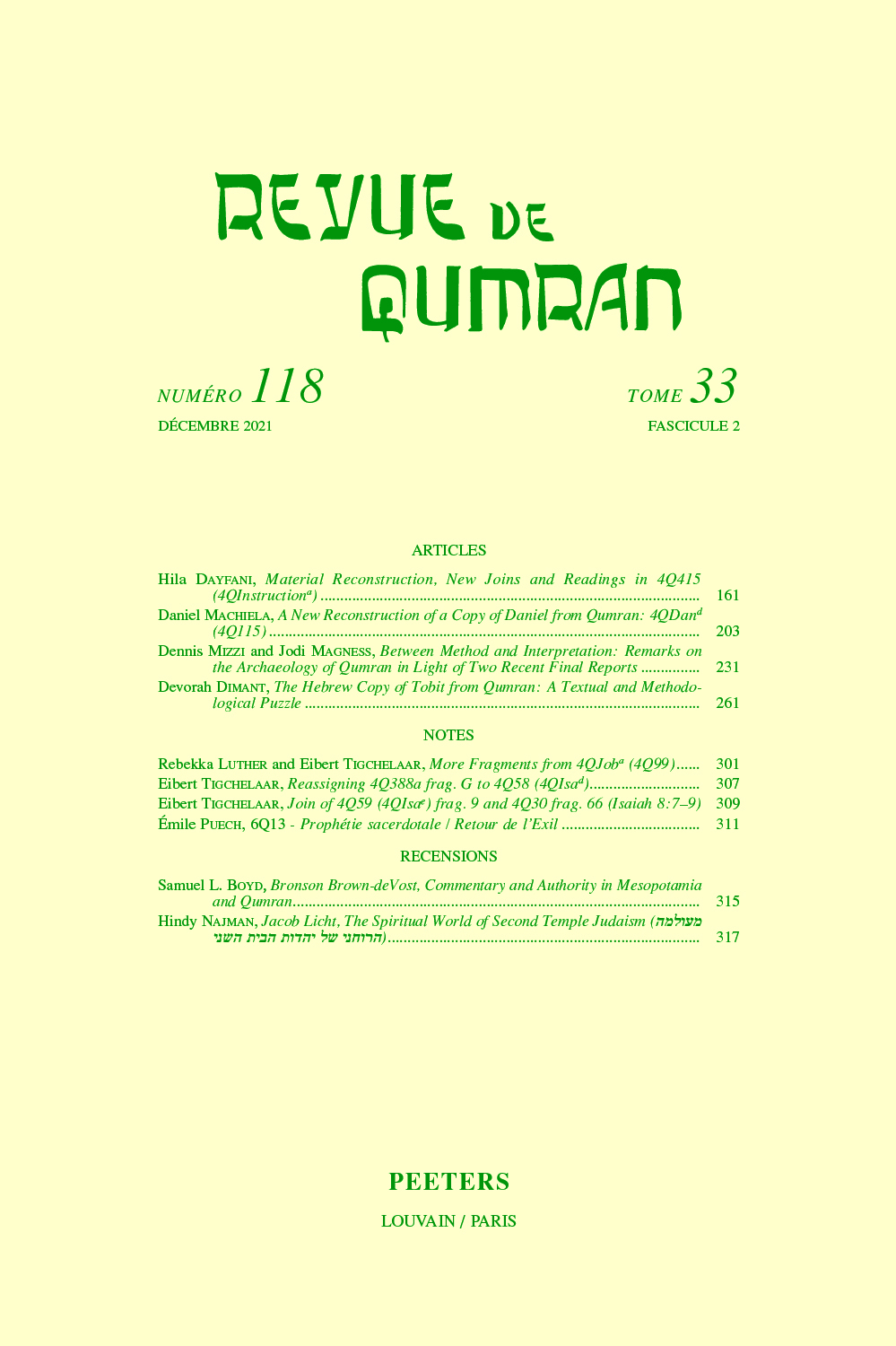 previous article in this issue previous article in this issue | next article in this issue  |

Preview first page |
Document Details : Title: The Compositional History of the Book of Jubilees Author(s): KUGEL, James Journal: Revue de Qumran Volume: 26 Issue: 4 Date: numéro 104, 2014 Pages: 517-537 DOI: 10.2143/RQ.26.4.3178208 Abstract : The author of Jubilees chose to write a retelling of the book of Genesis precisely because its events are all situated before the great revelation of divine law at Mount Sinai. His central argument was that Israel had been bound to God long before Sinai: in his retelling, God had chosen Israel as His special people on the sixth day of Creation, and various ancestors of the people of Israel had been tied by covenants to God and had kept various laws (including those connected with the biblical festivals and other holy days) well before the Sinai revelation. He thus sought to argue that, even if Israel had violated the Sinai covenant and had subsequently been exiled, this hardly spelled the end of Israel’s special status as God’s own people. Sometime after the completion of the original book, an interpolator inserted a number of passages that sought to correct what he considered an objectionable element in the original, the implication that some of the Torah’s laws had originated in practices adopted by Israel’s ancestors on their own initiative. 'Not so!' he claimed; long before the time of those ancestors, those divine laws had been inscribed on high in the 'Heavenly Tablets'. |
|


